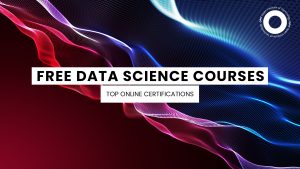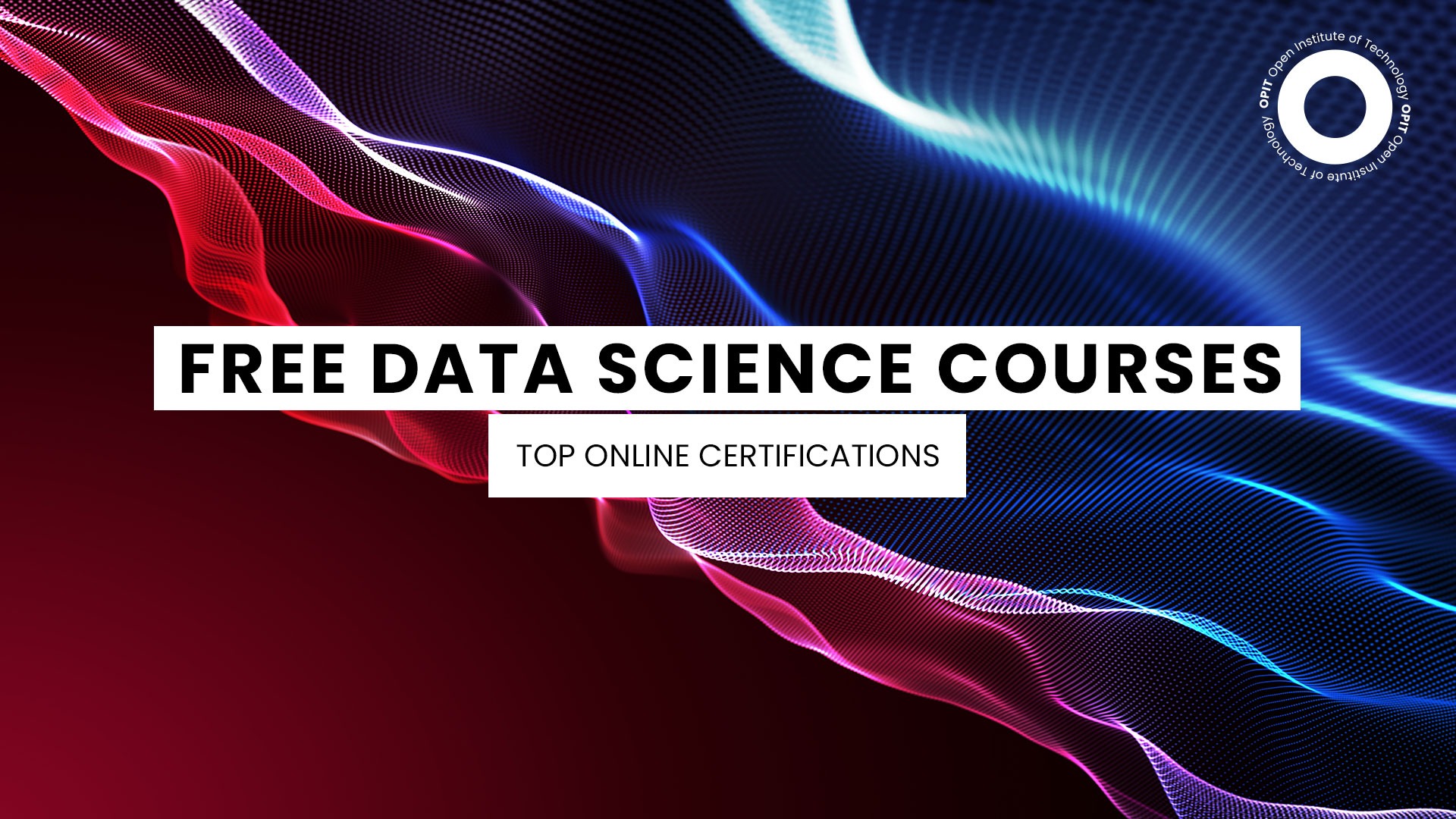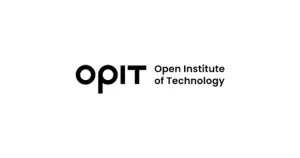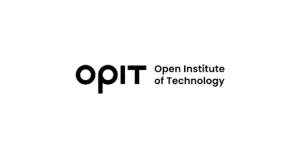

In a world of Big Data, companies need people who have the ability to analyze and reach conclusions from the reams of data they collect about customers. But data science extends far beyond the corporate. Any industry that uses data (i.e., practically all of them) needs data-minded people who can use the latest AI-driven tools to help them scour large datasets.
That’s where you come in. As a potential data scientist, you’ll enter an industry that’s experiencing enormous growth to the point where it will be worth $103 billion (approx. €96.37 billion) by 2027. That market growth translates into demand for talented data scientists, which is already seen today as Coresignal’s data – 8,000 available job postings across eight leading positions in the first five months of 2022 alone – demonstrates.
So, the benefits of earning a free data science certification are obvious – you’re entering a growing industry with huge demand that leads to a better salary. But you need to know which courses will help you break into that industry. This article highlights four of the best free data science courses around.
Top Four Free Data Science Courses
As wonderful as the word “free” may be to budget-conscious students, you still need to know that you’re getting something of value from your data science course. The following options deliver a stellar educational experience and leave you with a qualification that employers recognize.
An Introduction to Data Science (Udemy)
Every journey starts with a first step, and it’s crucial that you take the first step into data science with a course that covers the basics and lays a foundation on which you can build. An Introduction to Data Science does just that by teaching you what data science is and how it applies to the modern world.
That teaching starts with a history lesson that shows how interactions with data (and data collection methods) have evolved over the years. From there, you’ll learn how data science applies in modern industry and discover the difference between actual valuable data and the oodles of “noise” that are in datasets.
It’s a quick and easy course, weighing in at 43 minutes spread across six video lectures, so you don’t have to make a huge time commitment. It’s delivered online by a Google Certified Python Expert named Kumar Rajmani Bapat and is ideal for getting the basics of data science down before you move on to a more intensive or focused course.
But the focus on the basics is also the biggest issue with this course. Rather than showing you the techniques a data scientist uses, the course focuses on what data science is and offers a roadmap for getting into the industry. It’s more about “what” than “how,” which may make the course too rudimentary for people who already have some knowledge of the subject. It’s also worth noting that this isn’t one of those free data science courses with certificate, as you’ll need to pay for an Udemy subscription to get your hands on a certificate of completion. You can still watch the videos and complete the course for free, though.
Introduction to Data Science (SkillUP)
With a similar name to the above Udemy course, you’d be forgiven for assuming that SkillUP’s Introduction to Data Science program teaches the same stuff. Though the course is aimed squarely at beginners, it takes a more in-depth approach that makes it the ideal follow-up to Udemy’s offering.
You start with the basic spiel about what data science is and how it applies to modern industry. But from there, the course tips into actual application by demonstrating some of the best Python programming libraries to use in the field. You’ll also dig deep into the algorithms used in data science, with linear regression analysis, confusion matrices, and logistic regression all getting some time to shine.
Given this higher focus on the skills you’ll need to learn to become a data scientist, the course is longer than Udemy’s offering. It clocks in at seven hours of videos and tutorials, all of which you access online and work through at your own pace. The course also expects you to have a solid grasp of math and programming (some experience with Python is a must) so this isn’t ideal for complete beginners to computer science.
This is a data science free online course with certificate, though there is a caveat. SkillUP only provides 90 days of free access to the course. If you feel it will take longer than that to get through the seven hours of tutorials, you’ll need to enroll in a paid subscription. The best approach here is to only start the course when you’re confident that you can block out the time needed to wrap it up within 90 days.
IBM Data Science Professional Certificate (Coursera)
Aimed squarely at the career-focused individual, IBM’s data science course is all about building the skills that set you on the right path to a career in the field. It takes a more practical approach, starting you off with the fundamentals before pushing you into a project where you’ll work with a real-world dataset and publish a report that’s analyzed by stakeholders simulating what you’ll experience in the working world.
The good news is that you don’t need to know anything about data science to get started with the course. It holds your hand as you learn the basics of what data science is (including what a data scientist actually does) and teaches you about the tools and programming languages you’ll use in the field. Once you have a grasp on the fundamentals, you’ll learn how to analyze and visualize data, in addition to creating machine learning models using Python, before wrapping up with the previously mentioned project.
The IBM Data Science Professional Certificate is a more intensive course than the others on this list. It’s essentially a mini degree, requiring you to invest 10 hours per week for five months into your learning. However, the course is provided entirely online, allowing you to schedule that learning time as you see fit. You’ll work through 10 modules as part of the certificate.
That time commitment may be a downside for those who can’t put 10 hours per week into a course, though that downside is outweighed heavily by the fact that you come out with an IBM certification. Having one of the leading names in computing on your certificate is enough to make any employer sit up and take notice.
Data Analysis With Python (freeCodeCamp)
The Python programming language (along with SQL and a few others) underpins almost everything that the modern data scientist does. Data Analysis with Python takes that concept and runs with it by providing a course that digs into using Python to read, analyze, and visualize data.
Along the way, you’ll learn about the basics of both Python and data analysis, though the real highlight comes from the many libraries and tools the course introduces. You’ll use Seaborn, Numpy, Mayplotlib, and Pandas during the course. All of which are libraries used by professionals to extract and visualize data. The course wraps up with a series of five projects, each testing a different set of skills learned via the modules, with your certification coming after you’ve completed all five.
This is one of those free data science courses that’s entirely self-paced and there are no time constraints or commitments involved. Once you’ve signed up for freeCodeCamp, you can save your progress through the course at any point and return whenever you’re ready. Theoretically, this means you could start the course, save your progress, and then return to it months later, though that isn’t recommended if you want to keep the information fresh in your mind. All told, the course contains 37 modules, plus the five projects required for certification, making it one of the most in-depth Python courses around.
The focus on Python is great for those who are unfamiliar with the language, though it also creates some issues. Namely, this isn’t the right course for those who don’t understand data science fundamentals. It jumps straight into analyzing datasets using Python, so those who don’t really understand what datasets are or how they apply to the modern world should start with a more beginner-oriented course.
Tips for Choosing the Right Data Science Course
You get the same benefit from all of the listed data science online courses – free entry. But each course offers something different. Use these tips to determine which is the right choice for you:
- Assess your current skill level to pick a course that delivers what you need to know right now rather than a course that forces you to run before you can walk.
- Determine your learning goals so you can see how the course fits into your roadmap for becoming a data scientist.
- Consider the course’s format and duration as both will play a huge role in how you schedule your learning around your other commitments, be they work-related or personal.
- Look for courses that offer hands-on project work once you’ve moved beyond learning the basics of data science.
- Read reviews and testimonials from other students to see if people in your position get actual value from the course.
Start Your Journey With Free Data Science Courses Online
Every journey starts with a first step, and that first step could take you into a career that has massive potential for growth if you opt for the data science path. The four courses listed here each offer something different, from exploring the basics of what data science is to digging deep into the programming tools you’ll use to conduct data analysis and visualization. Completing one of the four sets you on the right path, though completing all four gives you a solid grounding (and a set of certifications) that make you immensely attractive to employers.
Related posts


Source:
- Il Sole 24 Ore, published on June 23rd, 2025
At its core is a teaching heritage made up of 131 courses, 3,500 hours of video, 1,800 live sessions
Have questions?
Visit our FAQ page or get in touch with us!
Write us at +39 335 576 0263
Get in touch at hello@opit.com
Talk to one of our Study Advisors
We are international
We can speak in:


